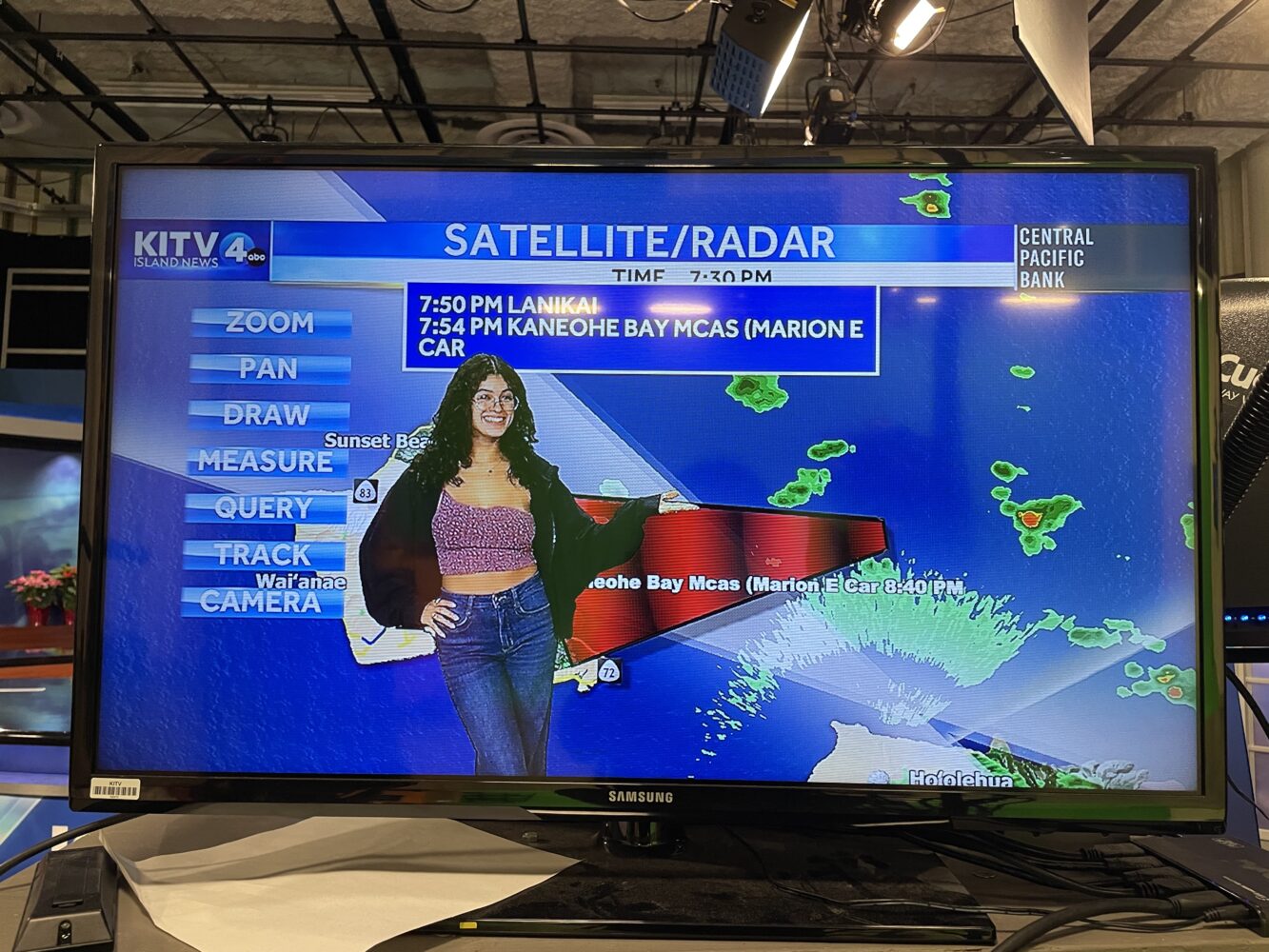First-generation student sets sights high with atmospheric sciences
 Anamaria Navarrete
Anamaria Navarrete
Anamaria Navarrete has been interested in weather all her life. As she approaches graduation from the University of Hawai‘i at Mānoa with a degree in atmospheric sciences, she is proud to have persisted on the journey as a first-generation college student and looks ahead to graduate school.
Though long fascinated by severe weather, she was reluctant to pursue a STEM field that has a reputation for being academically challenging. Navarrete, who is from San Diego, California, began as a political science major at UH Mānoa and intended to pursue law school. By the end of spring semester in 2021, she realized that law was not the career pathway for her. She switched to atmospheric sciences in the UH Mānoa School of Ocean and Earth Science and Technology and continued to pursue a minor in political science.
“I knew it would be difficult but I was willing to work hard,” said Navarrete. “Now that I am almost done with my degree, I am so incredibly happy that I made the switch, as I cannot see myself studying anything else. Not only do I love the subject, but the department professors, staff, and my fellow peers made this experience very memorable by being so supportive of one another.”
Gaining research experience, skills
While meeting with her academic advisor and Atmospheric Sciences department chair Jennifer Small Griswold, Navarrete shared her interest in pursuing graduate school. Griswold offered her an opportunity to work on a senior thesis project. Although not required to complete the undergraduate degree, Navarrete started the research project to learn new skills, such as computer coding, and gain experience to prepare her to complete a master’s thesis.
“Anamaria was a perfect candidate for a senior thesis,” said Griswold. “Her innate curiosity flourished doing independent research and allowed her to pursue her own scientific question and decide on the tools she needed to answer it. She became a competent programmer during her research because she needed to learn how to code to answer her question and reach her goal.”
Navarrete’s research over the past year has focused on understanding how various atmospheric and oceanic systems, such as El Niño Southern Oscillation and the Indo-Pacific Warm Pool, affect tropical cyclone creation and progression. Specifically, she analyzed satellite data from three tropical cyclones that impacted the Republic of Fiji during the 2020-2021 tropical cyclone season.

“Local-scale studies like this are essential,” said Navarrete. “Improving our understanding of microclimates on each island of Fiji can improve the accuracy of weather forecasts, validate climate model output, and even be useful in climate mitigation and adaptation strategies.”
This month, Navarrete will celebrate as a member of the graduating class of 2024 during the UH Mānoa commencement. Beginning in the fall, she will start the climate science master’s degree program at the Scripps Institution of Oceanography at the University of California, San Diego.




